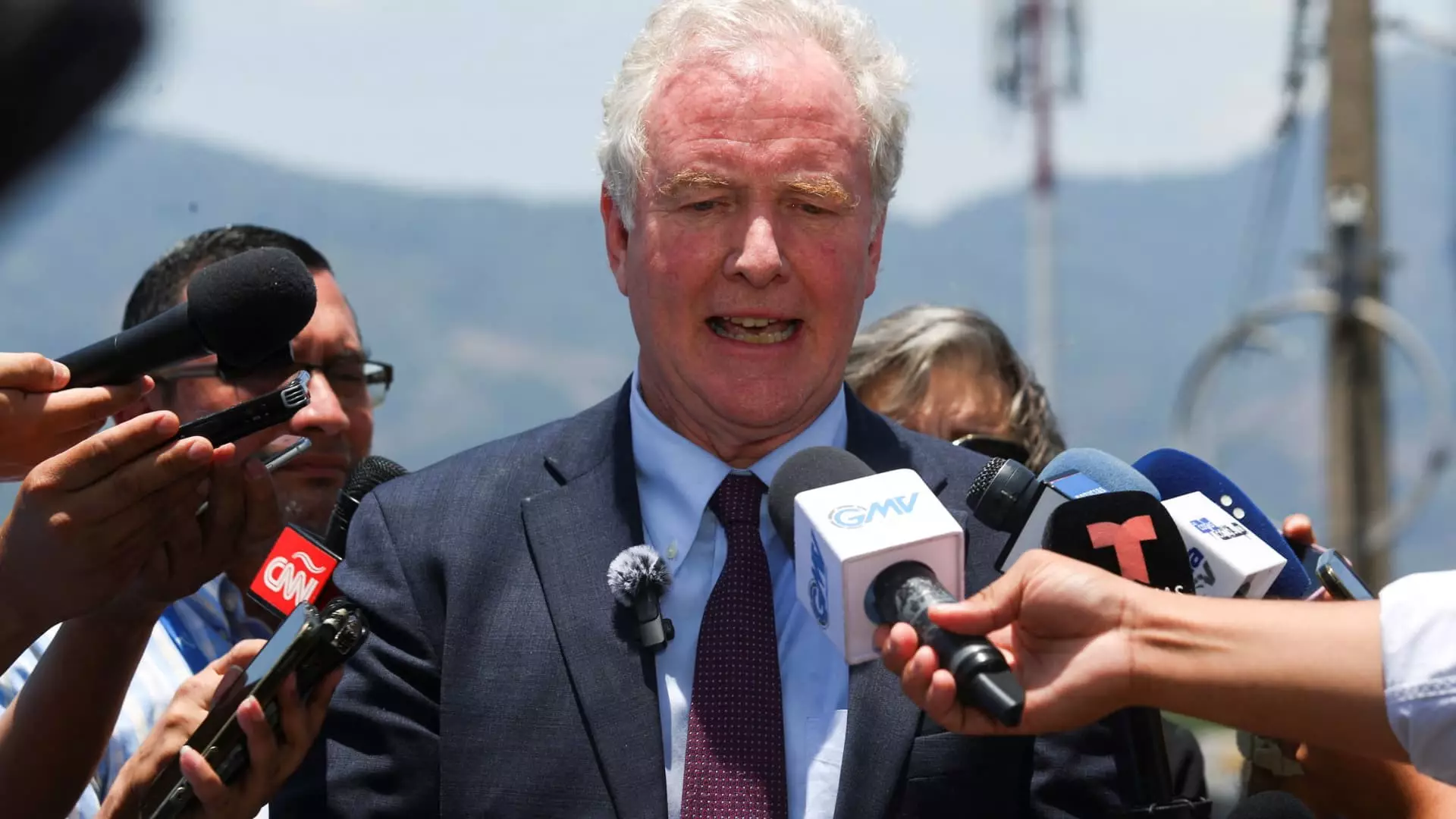In a world where justice is often a fleeting illusion, the case of Kilmar Abrego Garcia epitomizes a systemic failure that reverberates beyond individual tragedy. Abrego Garcia, a man whose deportation was deemed a mistake by the very administration responsible, finds himself entangled in a bureaucratic maze that exposes the callousness of our immigration policies. Maryland Senator Chris Van Hollen’s recent trip to El Salvador to meet with Abrego Garcia sheds light on not only this particular case but also the broader implications of a system that prioritizes political posturing over the preservation of human dignity.
Senator Van Hollen’s commitment to bringing attention to Abrego Garcia’s plight demonstrates a rare and admirable insistence to confront institutional injustices head-on. His meeting with Abrego Garcia comes on the heels of a Supreme Court ruling mandating the Trump administration to facilitate the man’s return to the United States. Yet despite the weight of this order, the senator encountered obstacles that laid bare the administration’s unwillingness to comply with judicial directives. This raises uncomfortable questions: what happens when the very individuals entrusted with upholding the law choose to disregard it? Is this an isolated incident, or are we witnessing a pattern of impunity that enables government officials to evade accountability?
The Cold Reality of Detainment
Van Hollen’s attempts to access the prison where Abrego Garcia is being held offer further insight into the chilling reality of his detainment. Being denied entry by soldiers operating under unclear directives sparks a troubling narrative about transparency and oversight, particularly in a detention facility that has been linked to terrorism. The fact that Van Hollen—a United States senator—was halted merely three kilometers from the prison he sought to enter signifies a dangerous precedent. It suggests that individuals facing deportation or imprisonment might not only be stripped of their freedom but also their very humanity, becoming ghosts in an opaque system with little to no accountability.
In a landscape where the rights of the individual are often trampled in the name of national security or political expediency, Abrego Garcia’s case represents a poignant reminder that we cannot stand idly by. His wife’s desperate pleas for contact, compounded by the Maryland officials’ insistence on verification of his health and wellbeing, spotlight the disconnect between government actions and moral responsibility. It is both unsettling and unacceptable that families are left in limbo, craving answers while officials sidestep the urgent need for transparency.
Political Implications and Human Rights
The ramifications of Abrego Garcia’s wrongful deportation extend far beyond a single family’s suffering. They resonate within the larger discourse on human rights, particularly as advocates rally for the rights of those who, like Abrego Garcia, are caught in a tangled web of governmental error. Senator Van Hollen’s endeavors to engage human rights groups, local embassy staff, and even high-ranking Salvadoran officials indicate a recognition that advocacy must traverse geopolitical boundaries to effect change.
However, the political repercussions of this situation are equally compelling. The Trump administration’s stark refusal to rectify its mistakes underscores a broader immorality that some might argue is rooted in a mindset that prioritizes nationalist rhetoric over compassion. Dismissing court orders while denying the basic rights of a detained individual reveals a troubling trend within American politics—one where pleasing a particular base takes precedence over the principles that underpin democracy itself.
As we grapple with Abrego Garcia’s story, it compels us to reflect on the kind of society we aspire to be. Our collective response to such injustices will reveal not only our moral fiber but also our commitment to ensuring that the justice system operates not as a mechanism of oppression but as a bastion of human rights. The time has come for all of us to take an active stance against the injustices that permeate our society, lest we find ourselves complicit in a system that perpetuates suffering while masquerading as a protector of liberty.

Leave a Reply